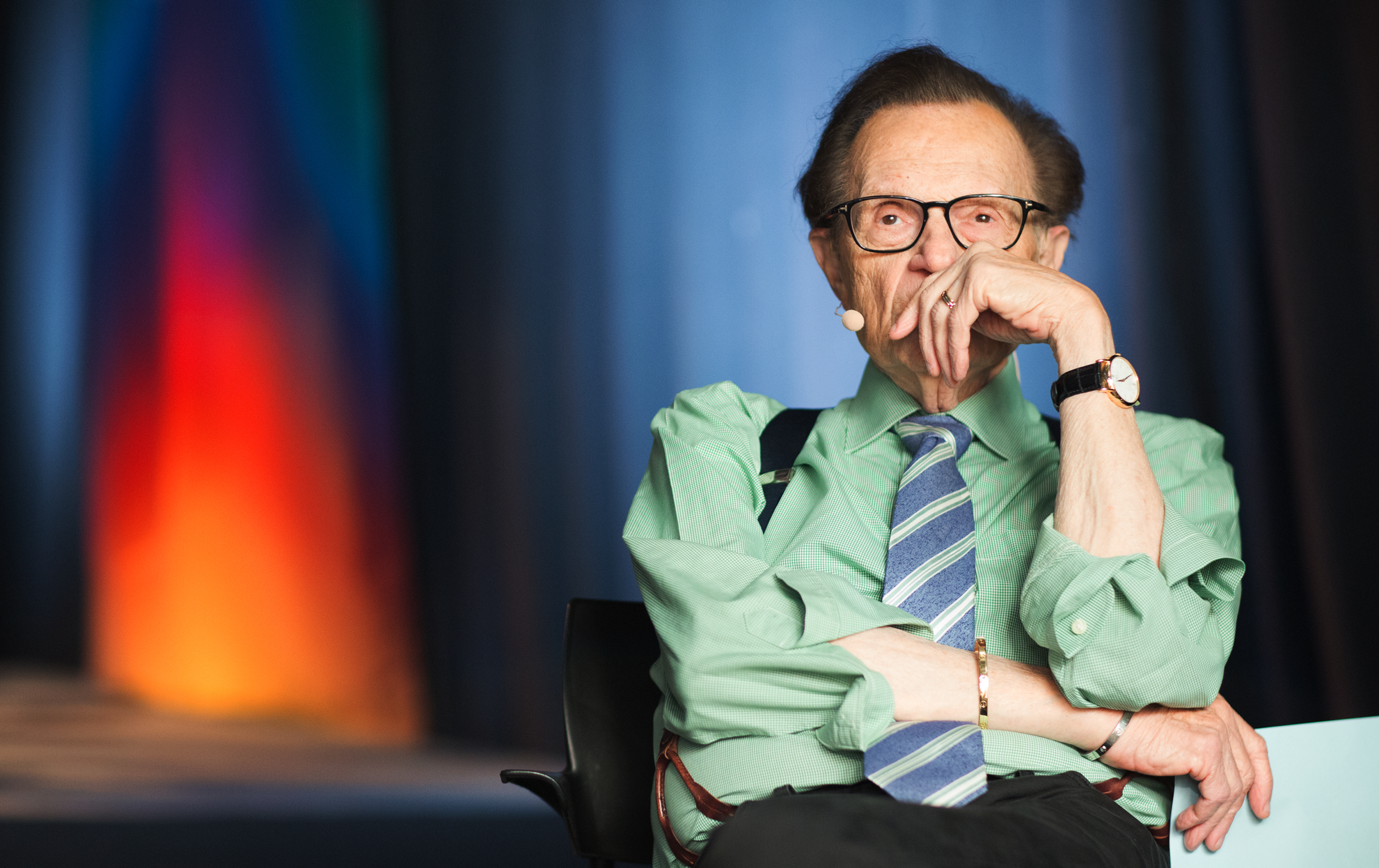‘Genuinely curious about the world’: Larry King’s legacy
Journalist and television icon Larry King, widely known as the host of CNN’s “Larry King Live,” died Jan. 23 of sepsis. WikiCommons
With his countless pairs of suspenders, breezy banter and broadcast career lasting half a century, Larry King became a familiar, friendly face and TV personality for countless American households.
That legacy of longevity made news of King’s Jan. 23 death shocking to admirers like Colette Ngo, a 2020 Chapman alumna who majored in broadcast journalism.
“I went on social media and saw that people kept posting pictures of him,” Ngo said. “To see that another legend like Larry King passed away is so upsetting.”
The 87-year-old King’s passing was announced via Twitter by his production company Ora Media, who explained King was experiencing health issues in recent months and was hospitalized for COVID-19 at the beginning of January. His widow, Shawn King, revealed his cause of death was sepsis, a condition that occurs when the infection-fighting process turns on the body, leading to tissue damage and organ malfunction.
King’s career surged in the late 1970s with the “The Larry King Show,” an all-night nationwide call-in radio program. He then began hosting and grew fame for the CNN-created program “Larry King Live” in 1985, where he interviewed celebrities, politicians and movie stars live on television for 25 years. King built a legacy as a respected journalist and entertainer, earning himself two Peabody Awards, an Emmy Award and 10 Cable ACE Awards.
With a booming baritone voice, antique microphone and wide-rimmed glasses, King would interview anyone from former President Bill Clinton or DJ Khaled to a psychic or an average Joe with the same comfortable and off-the-cuff style. King was famous for not preparing for his interviews, and while that received criticism from many, it separated him from many other journalists and talk-show hosts.
“(The style was) refreshing and it’s something that is pretty contrary to what most journalists do and to what we teach,” said Bret Marcus, director of the broadcast journalism program at Chapman University. “He felt like he didn’t want to have an advantage over his audience.”
With that idea of King placing himself at the same level as his guest, Marcus — who has met King on multiple occasions — described the host as being “respectful, a gentleman and humble,” noting the way King treated his guests made him unique.
“He was always warm and polite and funny,” Marcus said. “You watch TV news right now and there are too many hosts who want to upstage their guests and they want to show they know all the facts. Larry King wasn’t like that; he was like the average viewer and didn’t overshadow or grandstand.”
After the news of his passing, many of King’s colleagues and fellow celebrities shared their condolences and their favorite memories of the renowned reporter. Clinton, who King interviewed over 20 times, tweeted that the host “gave a direct line to the American people and worked hard to get the truth for them” and had “a great sense of humor and a genuine interest in people.” Meanwhile, on a live segment, CNN host Chris Cuomo gave an emotional tribute to King, saying “he was a mensch, a mentor and a man I could trust.”
Ngo said it was important for journalism students to study King’s interviews because of how he was able to report in his own unique way.
“Looking at Larry King’s legacy, people should learn to be their authentic selves no matter what,” Ngo said. “He really embodied just being himself and being genuinely curious about the world and whoever he was interviewing; you could really see that.”

